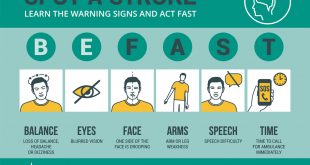By Jeffrey Edwards, MD, RPVI


• Remember to take your medication. If you are traveling to visit family or loved ones, remember to pack all of your medications and stick to your schedule. If you normally take medication during mealtime, it is important to keep them with you so that you don’t miss a dose. Ask your doctor if there are any foods to avoid which may impact your body’s response to your medication.
• Avoid stress. Stress can have many impacts on both your mind and your body. Studies have shown that chronically elevated levels of stress can increase your risk for developing cardiac and vascular disease. Remember to make time for yourself, and if you find yourself feeling overwhelmed with the holiday festivities, try a healthy remedy such as exercise or meditation. Avoid unhealthy responses to stress such as drinking alcohol or smoking.
• Make time for exercise, but don’t over-exert yourself. Walking is good for you, especially if you have peripheral artery disease. Studies have shown that participants in a structured exercise program can increase their walking distance by three to four times. If you are visiting family or friends, ask them about local parks or exercise facilities that may be available during your visit. Make plans to catch up with friends over a long walk. When you visit the market for those last-minute holiday ingredients, skip the front parking space.
• Prevent injury! The holiday season often means visits with children and grandchildren. While this is a wonderful time to bond with family, it can present several challenges to those with poor circulation or diabetes. Protect your feet and wear comfortable, well-padded shoes. Chronic wounds may form from only minor injuries and can increase the risk for limb loss. If you have concerns about wounds that are slow to heal, contact your vascular doctor as there are several treatment options available.
• Maintain a healthy diet. It’s ok to enjoy holiday treats in small portions, but balance is the key to healthy eating. If your favorite family recipes call for fried foods, try a grilled or baked option instead. Similarly, if your recipes call for butter, try plant-based oils as an alternative. Avoid heavily salted or processed foods, as this can lead to fluid retention, leg swelling, and possibly heart failure. Finally, when at parties and family events, fill your plate first with healthy options such as fruits and vegetables. Limit yourself to small portions of fatty foods and sweets.
• Don’t over indulge. Holiday parties offer plenty of alcohol, but please enjoy responsibly. Studies have shown that hospital admissions for stroke and heart conditions increase during the holiday season. Furthermore, over-indulgence may contribute to dehydration, missed medication doses, and injuries. This can lead to devastating consequences for patients with chronic cardiovascular conditions.
• Set a goal for the new year! Take the opportunity to identify a goal for yourself. Whether it is to lose weight, quit smoking, or exercise more – each can have a profound impact on your physical and mental well-being to ensure that you enjoy many holidays to come. Talk to your vascular healthcare professional about available resources that can help you achieve your goal. Many employers and insurance providers offer incentives to quit smoking. Your local hospital, community center, or fitness facility likely offers a variety of exercise classes which can be a great opportunity to meet others with similar goals.
• Travel smart. If you have venous disease such as deep vein thrombosis or varicose veins, ask your vascular doctor what you can do to reduce your risk of travel-related thrombosis. If you take a blood thinner, it is important not to miss a dose, particularly on travel days. In addition, you may benefit from using compression therapy while traveling to reduce your risk of forming blood clots.
Regardless of your holiday plans, remember to enjoy yourself, and keep these tips in mind to avoid an unexpected doctor’s visit.
Sarasota Vascular Specialists is the largest medical practice in the Tri-county area dedicated solely to the treatment of patients with disorders of the veins and arteries. Our board-certified vascular surgeons are uniquely trained and experienced to offer all forms of diagnosis and therapy.
Sarasota Vascular Specialists
941-371-6565
www.veinsandarteries.com
Sarasota
600 N. Cattlemen Road, Sarasota, Florida 34232
 Southwest Florida's Health and Wellness Magazine Health and Wellness Articles
Southwest Florida's Health and Wellness Magazine Health and Wellness Articles

